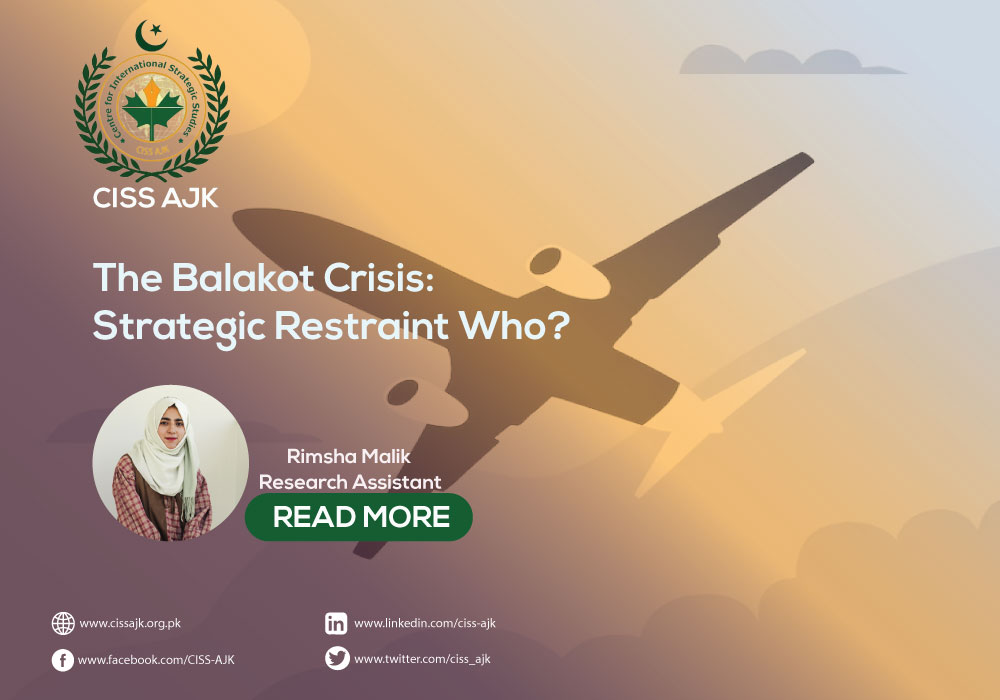771
THE Balakot incident took place on February 26, 2019, when the Indian Air Force (IAF) carried out airstrikes in Balakot, Pakistan. The attack was in response to a suicide bombing in Pulwama, India, on 14 February 2019, which had been carried out by a group, Jaish-e-Mohammed and had resulted in the death of 40 Indian soldiers. The Indian Air Force conducted airstrikes on what it claimed to be a Jaish-e-Mohammed training camp in Balakot, located in the Khyber Pakhtunkhwa province of Pakistan. The Indian government claimed that the strikes were successful and that a large number of terrorists were killed in the attack.
The Pakistani government disputed these claims, stating that the Indian airstrikes caused no casualties and only damaged some trees. Pakistan also claimed to have responded with its own airstrikes the following day, targeting Indian military installations in Kashmir. The Balakot incident escalated tension between India and Pakistan, with both countries engaging in military posturing along the border. There were fears of a wider conflict, but eventually, the situation de-escalated and both countries returned to a state of heightened alert but with no further military actions. In the context of the Balakot crisis, strategic restraint refers to the approach taken by both India and Pakistan to limit the conflict to a single military action, without escalating to a full-scale war.
After the Indian airstrike, Pakistan responded by shooting down Indian fighter jets and capturing an Indian pilot but released him as a gesture of goodwill. India, in turn, refrained from further military action and instead focused on diplomatic efforts to isolate Pakistan from the international community. The strategic restraint displayed by both India and Pakistan during the Balakot crisis can be attributed to a number of factors. One factor is the nuclear deterrence that exists between the two countries, which makes the prospect of a full-scale war too risky for both sides. Another factor is the international pressure on both countries to resolve their conflicts peacefully, as well as the economic and political costs of a prolonged conflict.
In the immediate aftermath of the crisis, former US official Joshua White stated, “The fact that some of the most basic facts, intentions and attempted strategic signals of this crisis are still shrouded in mystery… should be a sobering reminder that neither country is in a position to easily control a crisis once it begins.” National narratives about the crisis’ course continue to diverge sharply and reasonably informed observers in both capitals could come to the conclusion that their state had “won” the crisis. This has implications for whether it would be preferable to escalate or de-escalate the next potential crisis that might arise. There are no signs that either side has given confidence-boosting measures or other positive initiatives that could avert the next crisis any real thought.
While it wasn’t explicitly stated, India may have been prepared to accept the end of high-profile or significant assaults in private. India’s public goal was to stop Pakistan’s backing for terrorist organizations. Pakistan’s stated intention was to prevent conventional military attacks from India while apparently attempting to preserve flexibility in its Kashmir policy. It is too early to tell whether either set of coercive objectives was successful. Although Prime Minister Khan has stepped up his rhetoric against anti-Indian organizations that are based in Pakistan, it is unclear whether this reflects measures by civilian or military leaders in that country to reduce support for those organizations or otherwise impede their operations.
Any evaluation of how Balakot changed Pakistan’s calculations is further complicated by a string of subsequent events, such as the persistence of economic pressure from the international community on Pakistan to take action to stop the financing of terrorism, the visit of Khan to Washington and the vocal support of Trump for Khan and India’s decision to remove constitutional protections for Kashmir autonomy. These elements have cross-cutting implications and may intensify net coercive efforts on Pakistan to embrace India’s Balakot objectives or, after all is said and done, they may lessen those pressures and offer Pakistan more motivation and capability to avoid significant policy reforms.
Takeaways: Strategic Restraint Who? The Pulwama-Balakot crisis was merely the most recent in a series of India-Pakistan crises in which Indian leaders are more and more prepared to step up the ante militarily in order to create room for conventional retaliation to terror attacks on their soil that do not cross the line of Pakistani nuclear red lines. This represents a change from the previous administration’s strategy of strategic restraint, as became clear during the 2008 Mumbai attacks. Public opinion pressures undoubtedly play a part, but deterrence dynamics are also crucial. For instance, Indian officials may have reasoned that the persistence of terrorist strikes by militant organizations based in Pakistan required the development of a new strategy to prevent further attacks.
Luck can win the Day. The rational actor paradigm is complicated by conflict turbulence, friction and unpredictable outcome. Near misses occasionally result from this fog and friction, as regularly happened during the Cold War. But, in this case, the unexpected pilot exchange seemed to have the upper hand since it provided a chance for de-escalation and allowed each party to feel as though they had won. States cannot, however, rely on chance to end future crises, neither side gave confidence-boosting measures or other proactive moves that might prevent the next crisis Substant consideration is concerning from a crisis-learning perspective. What if, for instance, the pilot had passed away? Cheers to all tea enthusiasts out there! Let’s raise a cup to celebrate the magic of tea on this Happy Fantastic Tea Day.
—The writer is Researcher at Centre for International Strategic Studies, AJK. Working on Cyber Warfare and National Security.
Email: rimsham156@gmail.com



